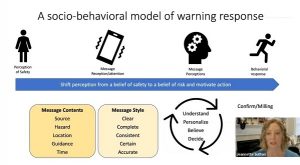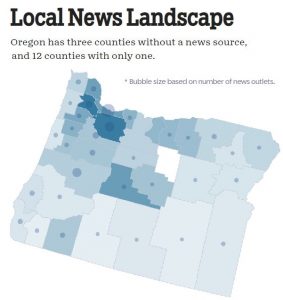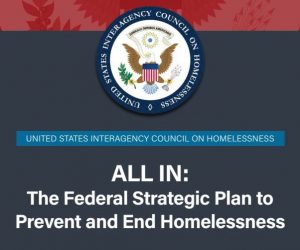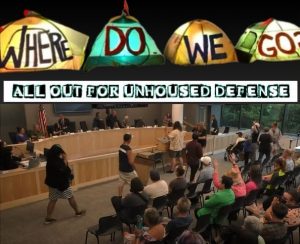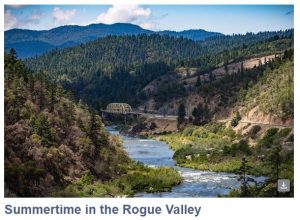Fossil Free Eugene cites public health risks from ‘natural’ gas
6 min read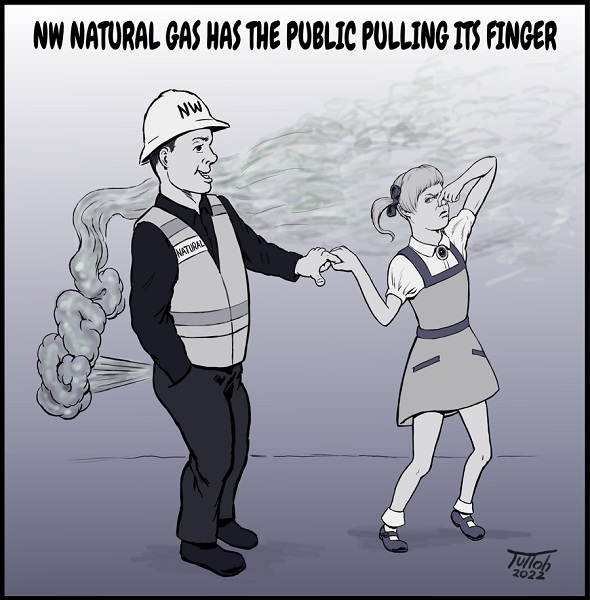
DJ Suss D: Northwest Natural Gas is on track to meet or exceed its voluntary carbon savings goals of 30 percent by 2035, including one of the lowest leak rates in the industry.
[00:00:11] During the recent 2022 Public Interest Environmental Law Conference, a coalition of environmental groups called Fossil Free Lane County claims Northwest Natural Gas has the public pulling its finger.
[00:00:25] Dylan Plummer: I think first things first, it’s really important to dispel maybe one of like the foundational myths of the gas industry, that is, that the gas that we’re using in our stoves and our furnaces, that’s being transported in pipelines underneath our communities, is quote unquote ‘natural,’ when in fact the majority of it is coming from fracking, which I’m sure many of you all familiar with is an extremely environmentally harmful I and socially harmful process of extracting gas from the ground.
[00:00:54] DJ Suss D: Senior Electrification Campaign Representative with the Sierra Club, Dylan Plummer, says there’s health and safety concerns with methane gas.
[00:01:04] Dylan Plummer: New data is coming out that’s showing it’s actually much more significant than we earlier thought. And premature deaths attributed to air pollution for buildings are estimated to be 18,300 annually in the country. Really, really significant.
[00:01:20] Most of that, those impacts are coming from nitrogen dioxide. And so gas homes with gas stoves have 50 percent to over 400 percent higher nitrogen dioxide levels in their indoor air than homes with electric stoves, which can lead to a myriad of different health impacts. One hour of cooking on gas stoves produces nitrogen dioxide levels that would be illegal if found outdoors.
[00:01:42] And I think the most shocking statistic that’s come out of these recent studies is that children in homes with gas stoves have a 42 percent increased risk of asthma symptoms.
[00:01:53] The Cascadia Subduction Zone quake that we are projected to experience in the coming years or decades? Having this kind of large berth of explosive gas infrastructure winding beneath our communities is a huge hazard.
[00:02:11] DJ Suss D: The cost of the gas infrastructure build-out can be passed to ratepayers.
[00:02:17] Nick Caleb: I think the whole point is just to delay regulation for as long as possible so that investors can ride off of the rents as long as possible while the utility continues to build out its fossil fuel infrastructure and get more and more people on that, payment system, to extract from, because once that infrastructure is in the ground, it’s much more expensive to get it out.
[00:02:38] So, you know, part of the reason why I think the Fossil Free Eugene folks are approaching things from the start of a gas ban is that you have to stop the bleeding at some point and stay no more of this while we figure out how we’re gonna to untangle the rest of the buildings from that.
[00:02:53] DJ Suss D: The attorney Nick Caleb was the environmental policy staffer for Portland city commissioner Chloe Eudaly.
[00:02:59] Nick Caleb: You know, one of those strategies that’s extremely important is just calling a spade a spade, and being able to talk about what a fossil fuel company is, what they do, the harms that they cause, and the risks that you take on in our communities and really push back on the kind of like, ‘Well, if we don’t do it here, they’ll do it somewhere else’ kind of argument, which is, I think a false argument. There’s only so many places that fossil fuel infrastructure can go. I mean, because of the monopoly status of these companies, there’s usually one in a service territory, right? And so they can be isolated and talked about as a single entity, which I think is really important.
[00:03:33] So Northwest Natural in particular (which is my gas company and the gas company that serves Eugene) is in a place where they are very vulnerable. They’re basically only a gas utility. They don’t have a blended business model. They’re facing an existential threat with communities like Portland in 2017 saying we want to transition to a hundred percent renewable energy, and then those calls kind of being adopted in other parts of the state, and then later seeing the state legislature began to adopt a hundred percent renewable energy goals. They realized at that point that they were under significant threat to their business model. And you know, what they are doing in response to that is basically offering, they’re doing two things.
[00:04:16] One is they’re pouring way more money into communications, sending messages to rate payers, you know, talking about everyone’s like take away their gas stoves. They’re also doing a lot more, I would say messaging to confuse the issues, to try to confuse people about what might be causing air quality problems in their homes.
[00:04:35] And then they’re also spending a lot of resources talking about how their solutions are ‘renewable.’
[00:04:40] DJ Suss D: Dylan Plummer outlined some of the benefits of electrification.
[00:04:44] Dylan Plummer: Electrification also supports climate resilience. So in Seattle during the 2021 heat dome, there was a study that was conducted showing that heat pumps were not only capable of maintaining the comfortable and safe indoor air temperature, but also saved households money compared to the expenses of a dual fuel cooling and heating system (so a separate AC unit and a gas furnace).
[00:05:06] It also makes sense economically. A study by UCLA found that electrifying California’s buildings over the next 25 years would create eight times as many jobs as might be lost in the gas industry.
[00:05:16] And the Rocky Mountain Institute has done analyses in Oakland and Seattle finding long-term savings for new construction of electric, single-family homes. We’re creating pathways for good paying family-wage jobs for workers in those industries, and we’re working with these communities to develop a shared vision for a world beyond this extractivist, again, fossil fuel economy that we’ve been stuck with for the past few centuries.
[00:05:50] DJ Suss D: Renewable natural gas (RNG) is made mostly from animal waste and releases carbon when burned. The City of Eugene is working with Northwest Natural to build a hydrogen gas plant that uses surplus electricity to split water molecules into hydrogen and oxygen with electrolysis.
[00:06:07] Dylan Plummer: A recent report from Oregon Department of Energy showed that renewable natural gas (RNG) can not even meet one-fifth of the capacity of current natural gas consumption in our state. And that’s in a best case scenario. So realistically, they can’t really meet even 5 percent. And this fuel should be saved for the hardest to electrify sectors such as heavy industry, not for easily electrified sectors like residential and commercial buildings.
[00:06:35] DJ Suss D: According to an Oregon Utility Commission report on SB 844, despite there being no active federal or state regulation that incentivizes natural gas utilities to reduce carbon emissions, utilities are currently devoting resources to reduce carbon emissions, and strategically planning for a future where GHG reductions are a normal part of business.
[00:06:58] Aimée Okotie-Oyekan, Climate Justice Strategist at Breach Collective, thinks there should be a more aggressive approach.
[00:07:06] Aimee Okotie-Oyekan: And we have, you know, traditional environmental conservation organizations. We also have social justice, racial justice, environmental justice organizations, and housing justice organizations to really demonstrate that this is an intersectional issue. And so the best organizing is really centered around discrete demands that people can latch onto. And so our platform is centered around these three demands.
[00:07:30] First, we want to ban the construction of all new fossil fuel infrastructure in the city.
[00:07:36] Second, we want to mandate that our utilities, EWEB or Eugene Water and Electric Board in the city, was providing us with 100 percent renewable energy by 2030.
[00:07:45] And third, it’s super critical that frontline communities, historically marginalized communities, are not shouldering the cost of this transition. So we need to be able to create a funding pathway that extracts wealth from companies like Northwest Natural and other polluters to be able to create a fund that can facilitate the transition to clean and renewable energy for low-income and historically marginalized communities,
[00:08:09] DJ Suss D: For KEPW Weekly News, I’m DJ Suss D from the show ‘Talk Is Cheap,’ Saturdays at 4 p.m..
